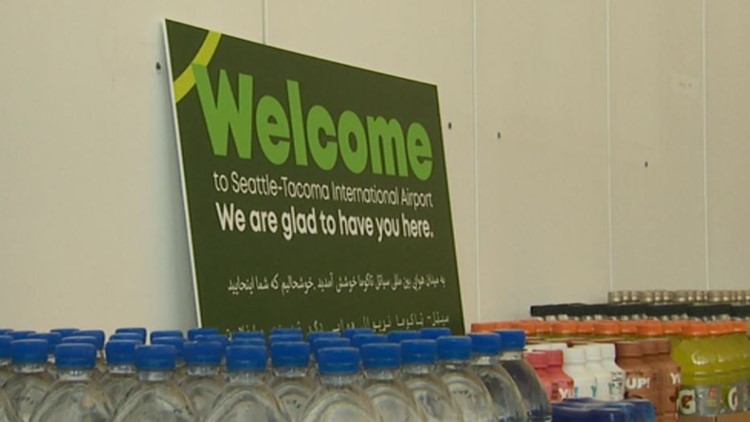SEATAC, Wash. — Sea-Tac Airport is preparing to welcome refugees from Afghanistan.
A dedicated welcome center is set up to give resettlement nonprofits the opportunity to meet privately with refugees who will live in the Seattle area, or prepare them for further travel.
The Taliban's takeover of Afghanistan triggered a wave of hundreds of thousands of refugees trying to escape into bordering countries.
The Washington Office of Refugee and Immigrant Assistance said the biggest challenge in welcoming Afghans to the state is finding safe and affordable housing on very short notice. That's where nonprofit World Relief Seattle comes in. The nonprofit will connect arriving Afghans with friends or family, help them find permanent housing and prepare them for life in the area,
Ashley Fisher, resettlement coordinator with World Relief, said the nonprofit normally has weeks to prepare for incoming refugees. Because of the situation in Afghanistan, however, information is sometimes coming in the same day as refugees are arriving.
As the U.S. pulled troops from Afghanistan, the U.S. government confirmed that plans were in place to receive as many as 22,000 refugees across military bases in the United States. Around that time, World Relief Seattle announced on its Facebook that as many as 25 Afghan refugees, many of those children, were already on the way to Seattle.
Through Operation Allies Refuge, Washington state welcomed 160 Afghans between July 29 and Aug. 14, according to the Office of Refugee and Immigrant Assistance.
The Seattle area can expect hundreds more refugees in the coming months.
Washington state has historically been a welcoming place for refugees and immigrants. Between 2010 and 2020, the state welcomed just over 30,000 refugees, including about 4,100 Afghan special immigrant visa holders.
Port of Seattle Commissioner Fred Felleman said the area set up at Sea-Tac Airport will be helpful for people who have just experienced a mass exodus from their home country.
The welcome center will be in place for about a month, Felleman said.
"If there will be another challenge, we'll be there to rise to it," he said.



